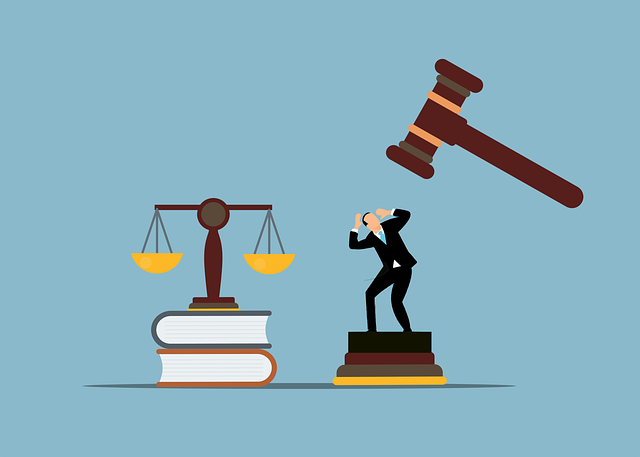Financial fraud, including embezzlement, identity theft, and fraudulent claims, poses significant risks to businesses. To combat this, companies must implement robust fraud detection systems utilizing AI/ML algorithms and analytics platforms for pattern recognition. Proactive monitoring and alert systems enable immediate dispute resolution, avoiding legal repercussions and fostering trust. Effective partner dispute resolution is key; open communication, structured mediation, and white-collar defense professionals ensure mutually beneficial outcomes. Learning from real-world case studies involving financial institutions and e-commerce platforms provides valuable insights for businesses to enhance defenses, improve fraud detection, and mitigate losses through strategic partnerships.
Financial fraud is a persistent threat to businesses, with sophisticated schemes constantly evolving. This article guides you through essential aspects of financial fraud detection, prevention, and management. We’ll explore different types and common indicators of fraud, delve into advanced tools and technologies for robust detection systems, and discuss effective strategies for resolving partner disputes. Through real-world case studies, we’ll demonstrate successful fraud detection and dispute management practices, offering valuable insights on How to Resolve Business Partner Disputes.
- Understanding Financial Fraud: Types and Common Indicators
- Building a Robust Fraud Detection System: Tools and Technologies
- Strategies for Effective Partner Dispute Resolution
- Case Studies: Real-World Examples of Successful Fraud Detection and Dispute Management
Understanding Financial Fraud: Types and Common Indicators

Financial fraud is a complex and insidious phenomenon encompassing various forms of deception aimed at gaining illicit financial advantages. Understanding these schemes is crucial for businesses to protect themselves, especially when dealing with white collar and economic crimes. Common types include embezzlement, where insiders misappropriate funds, and Ponzi schemes, which lure investors with false promises of high returns. Identity theft and fraudulent insurance claims are also prevalent. Recognizing these scams is key to preventing significant financial losses.
Indicators can range from unusual transaction patterns and falsified documents to suspicious activity by business partners or employees. How to Resolve Business Partner Disputes often involves meticulous investigation into these signs. For instance, a sudden change in a partner’s behavior or an unexpected shift in financial management might warrant further inquiry. The field of general criminal defense plays a vital role here, offering strategies to mitigate risks and protect both corporate and individual clients from fraudulent activities.
Building a Robust Fraud Detection System: Tools and Technologies

Building a robust fraud detection system requires a multi-faceted approach leveraging advanced tools and technologies. Artificial Intelligence (AI) and Machine Learning (ML) algorithms play a pivotal role in identifying patterns and anomalies indicative of fraudulent activities. These algorithms can analyze vast datasets, including transaction histories, customer behavior patterns, and network communications, to uncover subtle signs of deception that might be missed by human analysts. By continuously learning from new data, these systems adapt and improve their accuracy over time.
Furthermore, integrating sophisticated analytics platforms with robust data security measures is essential. These platforms utilize advanced statistical methods and predictive modeling to not only detect but also prevent fraudulent schemes. Additionally, real-time monitoring and alert systems ensure that suspicious activities are promptly investigated. This proactive approach helps businesses not only achieve extraordinary results in winning challenging defense verdicts or avoiding indictment but also fosters a culture of transparency and accountability among business partners, ultimately strengthening trust and resolving disputes efficiently.
Strategies for Effective Partner Dispute Resolution

Effective partner dispute resolution is a critical component of financial fraud detection and prevention. When business partnerships sour, it’s crucial to have well-defined strategies in place. The first step involves open communication channels where all parties can express their concerns and grievances. This process should be transparent, allowing for the early identification and clarification of issues. A structured mediation or arbitration approach can also be beneficial, providing a neutral third party to facilitate negotiations. By involving professionals with expertise in white-collar defense, partners can navigate complex legal landscapes and work towards mutually agreeable solutions.
In many cases, successful resolution involves creative problem-solving and flexible thinking. Reaching a win-win outcome across the country, where all parties feel heard and respected, is essential for maintaining business relationships. This not only fosters trust but also strengthens the partnership’s foundation, ensuring better collaboration moving forward. Through meticulous planning and strategic execution, even the most challenging partner disputes can be transformed into opportunities for growth and enhanced understanding.
Case Studies: Real-World Examples of Successful Fraud Detection and Dispute Management

Fraud detection and dispute management have significantly evolved through real-world case studies, offering valuable insights into effective strategies for businesses to safeguard their interests. Successful examples range from financial institutions scrutinizing unusual transaction patterns to e-commerce platforms employing advanced analytics to identify fraudulent activities. These cases demonstrate the importance of a multi-faceted approach, encompassing data analysis, pattern recognition, and robust internal controls.
Understanding how to resolve business partner disputes is crucial in navigating all stages of the investigative and enforcement process. Across the country, general criminal defense attorneys play a pivotal role in these matters, providing expertise in legal procedures and helping to ensure fair outcomes. By learning from these real-world scenarios, businesses can enhance their defenses, improve detection rates, and mitigate potential losses, thereby fostering trust within their operations and partnerships.
Financial fraud is a complex challenge, but with the right tools and strategies, organizations can significantly reduce risks. By understanding various fraud types, leveraging advanced technologies, and implementing effective dispute resolution processes, businesses can protect themselves. The case studies highlighted demonstrate that proactive measures and swift actions are key to managing fraudulent activities successfully. When it comes to How to Resolve Business Partner Disputes, a comprehensive fraud detection system and collaborative dispute management strategies prove invaluable in maintaining integrity within business partnerships.






